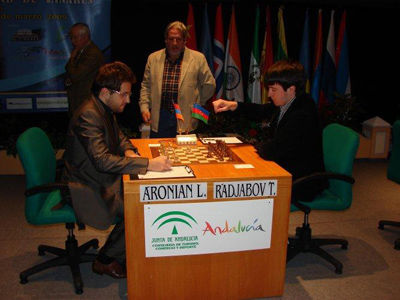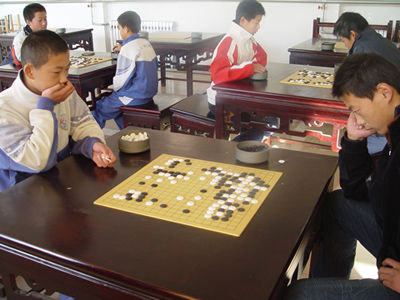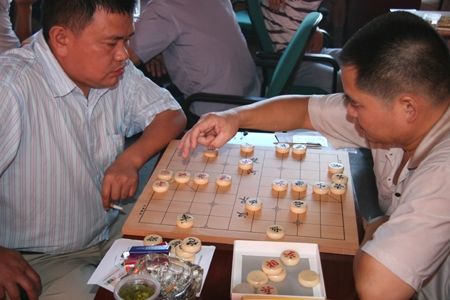
|
ChessChess Chess
Chess is a recreational and competitive game played between two players,it is believed to have originated in ancient India, the current form of the game emerged in Southern Europe during the second half of the 15th century. Today, chess is one of the world's most popular games. The game is played on a square chessboard with 64 squares arranged in an eight-by-eight square. At the start, each player (one controlling the white pieces, the other controlling the black pieces) controls sixteen pieces: one king, one queen, two rooks, two knights, two bishops, and eight pawns. The object of the game is to checkmate the opponent's king, whereby the king is under immediate attack (in "check") and there is no way to remove it from attack on the next move. Chess made its Asian Games debut in 15th Asian Games, Doha, in 2006. Weiqi
Weiqi is a mind sport that originated from China. It has been popularizing from 2,500 years ago. Weiqi has been spread to the Korean Peninsula and Japan in Han Dynasty and Tang Dynasty individually, and gradually spread to across the world. It fully embodies the oriental way of thinking and ideological system, and is one of the major contributions China has made to the world civilisation. Weiqi is making its Asian Games debut in 16th Asian Games, Guangzhou, in 2010. The black and white stones are displayed on a Weiqi board with 361 crosses made of 19 vertical lines and 19 horizontal lines. It is played as the follow rules: 1. Weiqi is played by taking turns to put black and white stones on the cross of the board. One can only go one stone each time. 2. The cross made by the vertical and horizontal stone line is the "Qi" of the stone. If the "Qi" of one stone or connected stones is completely occupied by the other player, it is called "dead stone", and has to be lift up from the board. 3. Finally who wins more area on the board wins the game. 4. The act of lifting a stone for each other is called "Jie" (rob). In order to avoid non-stop game with repeated lifting, one must not lift immediately in return after being lifted. Xiangqi
Xiangqi has a long history. It can be traced to Warring States Period, a period of battle between different states. Xiangqi represents a battle between two armies, with the object of capturing the enemy's "general" piece. Xiangqi is one of the most popular board games in China. Distinctive features of Xiangqi include the unique movement of the pao ("cannon") piece, a rule prohibiting the generals (similar to chess kings) from facing each other directly, and the river and palace board features, which restrict the movement of some pieces. Each side has 16 pieces, each player in turn moves one piece from the point it occupies to another point. A piece can be moved onto a point occupied by an enemy piece, in which case the enemy piece is "captured" and removed from the board. The game ends when one player captures the other's general or with a draw or a stalemate. Xiangqi is making its Asian Games debut in Guangzhou Asian Games, 2010. |
|
| Site Map | RSS | Newsletter | Work for Us Copyright © China.org.cn. All Rights Reserved 京ICP证 040089号 |
 0
0 










Go to Forum >>0 Comments